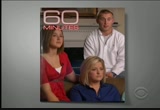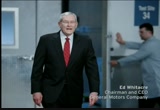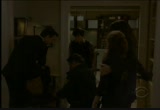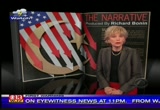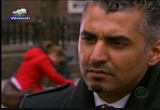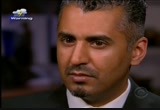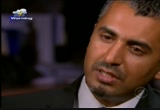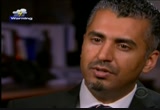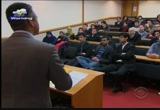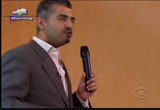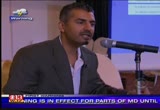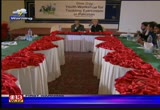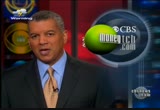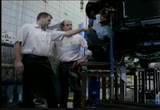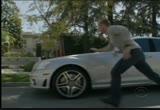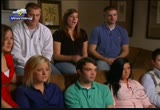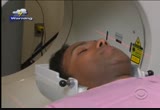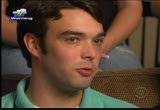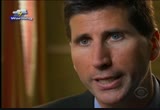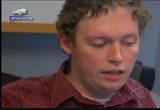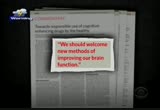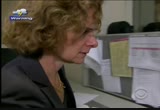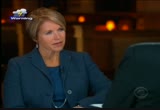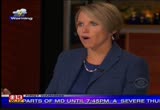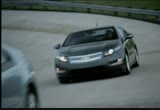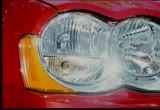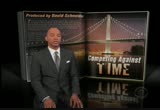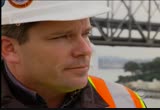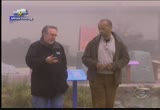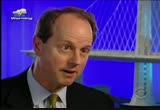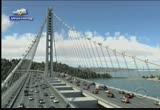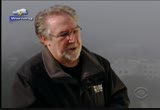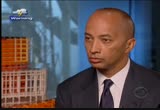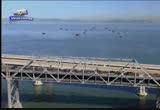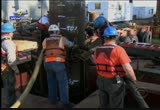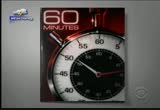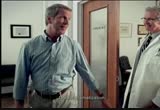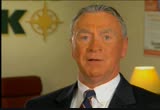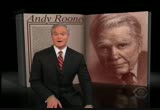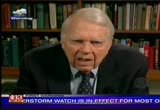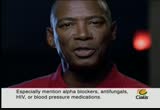tv 60 Minutes CBS April 25, 2010 7:00pm-8:00pm EDT
7:00 pm
captioning funded by cbs and ford-- built for the road ahead. >> america is waging a war against islam, invaded iraq because it hates islam, invaded afghanistan because it hates islam. >> stahl: he is describing "the narrative," an ideology that convinces young extremists that america is hell-bent on crushing islam. once a true believer, maajid nawaz is now trying to convince young muslims in places like pakistan that it's wrong. >> do you know how many muslims are in america? do you know how many mosques there exist in america? do you know that obama's father
7:01 pm
is muslim? >> couric: if there was a drug that would make you smarter, would you take it? today, an increasing number of healthy people are using drugs without a prescription as a way to improve their mental function. and if you want to find someone who's trying it out, just visit a college campus. >> everybody is trying to get an edge and, i mean, if you can take a pill that will help you study all night to get that grade you need, i mean, a lot of people don't see why they wouldn't do it. >> if a very large earthquake strikes now, we're going to have trouble with that structure. >> pitts: that bridge goes in the water? >> portions of it may... may be. >> pitts: there's no doubt that a big quake will hit the san francisco bay area; the question is, will the new earthquake- proof bay bridge, one of the most important bridges in the country, be built in time to withstand it? >> the hayward fault sits right in the middle of the bay area. two million people sit directly on top of it.
7:02 pm
when it goes, it will be the first major earthquake to occur in the middle of a modern u.s. city. >> i'm steve kroft. >> i'm lesley stahl. >> i'm scott pelley. >> i'm morley safer. >> i'm byron pitts. >> i'm katie couric. those stories and andy rooney tonight on "60 minutes." i'm ed whitacre, from general motors. a lot of americans didn't agree with giving gm a second chance. quite frankly, i can respect that. we want to make this a company all americans can be proud of again. that's why i'm here to announce we have repaid our government loan, in full, with interest, five years ahead of the original schedule. but there's still more to do. our goal is to exceed every expectation you've set for us. we're putting people back to work, designing, building, and selling the best cars and trucks in the world.
7:03 pm
7:04 pm
yeah! i mean, people love imported water. so this is the next logical step. i think i'll stick with following my green line. oh, come on! hey, working with my guy at fidelity could have me retiring in a few years. and besides, couldn't people just freeze their imported water? don't be ridiculous. work with the company that's helping more people reach retirement than anyone else -- because when it comes to investing, you should never settle. fidelity investments. >> stahl: when it comes to terrorism and extremism, intelligence agencies in the u.s. and europe have been grappling with a bewildering
7:05 pm
phenomenon-- that a surprisingly large number of islamic radicals are relatively well-off and well-educated westerners. to look into this, we recently went to great britain, where there are more supporters of al qaeda than anywhere else in the west. in london, we met a british muslim named maajid nawaz, who told us that what is turning so many of his countrymen into radicals is something called "the narrative." it says the united states is out to destroy islam. it's an ideology islamic radicals subscribe to. we asked nawaz, a former true believer, exactly what is "the narrative"? >> maajid nawaz: that america is waging a war against islam, invaded iraq because it hates muslims, invaded afghanistan because it hates muslims. and that the only way to stop this war is for muslims to start fighting back on all fronts against the west. >> stahl: did you buy it all? >> nawaz: absolutely, yeah. i believed it. >> stahl: you accepted everything you were saying?
7:06 pm
there was no cynicism within you? >> nawaz: no, i... and i put my neck on the line for these beliefs. i was a genuine, committed ideologue. >> stahl: nawaz was a leader of hizb ut-tahrir, or "party of liberation," one of britain's most active islamic extremist groups. he joined when he was in college here at the university of london. >> nawaz: this is where i actually took the oath, the membership oath. >> stahl: and recruited other students to fight against the west. was it easy to recruit kids here? were they susceptible? as you say, they're very intelligent, they're well-read. >> nawaz: it was very easy. and i've got to say that, actually, intelligence makes it easier. and it's intelligent people that adopt ideologies. >> stahl: he points to people like the alleged christmas day bomber, who also attended the university of london; and the ringleader of the suicide bombing of the london underground, who went to leeds metropolitan university. >> our religion is islam... >> stahl: here he is in this martyrdom video, telling the british public that, by invading
7:07 pm
iraq, the west demonstrated it was out to destroy muslims. >> your democratically elected governments continuously perpetuate atrocities against my people all over the world. >> nawaz: and this is in a thick yorkshire accent, someone who's born and raised in the u.k., saying to his own fellow countrymen, "your people have attacked my people." what suddenly made him think that the british public had attacked his people, who are the iraqi public, when he's a member of the british public, born and raised here? >> stahl: he's the picture of homegrown terrorism, with a biography similar to maajid nawaz's. a third-generation pakistani- brit, nawaz grew up in an upper- middle class home in essex, east of london. his father was a successful engineer in the oil business, and growing up, nawaz was both happy and assimilated. >> nawaz: all my friends were non-muslims. i actually knew very little about islam, like, very little. >> stahl: so, you weren't religious. >> nawaz: no, i wasn't religious. >> stahl: did you go to the mosque? >> nawaz: no, i didn't. >> stahl: everything began to
7:08 pm
change in his early teens, when he and his mostly white friends were attacked by racist gangs. they were skinheads. >> nawaz: yeah. they didn't attack me directly. but they attacked my white friends in front of my eyes to discipline them, to make examples of them for being "blood traitors". >> stahl: just by being your friend, they were "blood traitors." >> nawaz: yeah. >> stahl: so, you'd be out with your white friends and the skinheads attacked them, not you? >> nawaz: they would hold me back and make... force me to watch them stab my friends. >> stahl: stab? >> nawaz: yeah. with knives. yeah, i was about 13, 14 years old. >> stahl: he says that primed him, made him susceptible to the radical message. >> nawaz: i was primed because of this racism to already feel that i didn't belong in my own society. i felt that there was something different about me. and it was at that phase, at that stage of my life, that i came across a young medical student. >> stahl: the medical student was a recruiter for the group hizb-ut tahrir, or h.t., which has supporters around the world,
7:09 pm
from here in indonesia to england. unlike al qaeda, it does not advocate the use of terrorism, but it is fervently anti-western and deeply committed to the narrative. when h.t. recruiters worked on nawaz, they played on his sense of alienation. they broke you down, so that you were no longer british; you, a person who had had no religion, became a muslim. >> nawaz: yeah. along came these islamist activists and said, "you're being targeted because you're muslim, and non-muslims hate islam," when the skinheads who attacked me didn't have a clue i was a muslim. they were looking at the color of my skin. >> stahl: and you bought it? >> nawaz: i did. as an angry, young, naive 15-, 16-year-old. >> stahl: and you became a muslim? >> nawaz: and i became suddenly not just a muslim in faith; i became a muslim in politics, somebody whose politics were predefined by one interpretation of islam. >> stahl: what is your job, once you join up? >> nawaz: to recruit as many people as possible to this group, and spread this narrative far and wide. >> stahl: after working in england for five years, he was sent abroad to spread the
7:10 pm
narrative, to pakistan and then to denmark. when he went to egypt in 2001, he was arrested in a post-9/11 crackdown on islamic radicals. it was the beginning of his journey back from extremism, a journey that began in the dungeons of cairo's state security headquarters. >> nawaz: everyone was given numbers. my number was 42. and then, what they did is they started with number one, called number one into their interrogation cell. and the rest of the hundreds of people that were there would have to listen to number one scream as he was being electrocuted. then, they would call number two, and everyone had to hear number two scream and... and get electrocuted. they'd call number three. and they'd go up the numbers one by one. so, you can imagine... i was 42. >> stahl: and you listened to 41 people being... >> nawaz: i'd have to listen to 41 people being tortured. >> stahl: you said "electrocuted". what do you mean, "electrocuted"? >> nawaz: electricity was applied to their genitalia and their teeth. >> stahl: oh, my god. during his trial, he remained defiant. he would walk in and out of court shouting out radical slogans.
7:11 pm
after he was convicted and sentenced to prison for five years, he was locked up with the assassins of anwar sadat and leaders of the muslim brotherhood. boy, if you weren't radicalized up until then, you certainly would've been then. >> nawaz: well, the interesting thing with these guys is that, in the 20 or so years since they've been imprisoned, they'd gone through a process where they had abandoned their jihadist views. >> stahl: they did? >> nawaz: yeah. and my initial reaction was, "oh, my god, you've sold out. and so, i approached them with an idea to try and actually convince them they were wrong. >> stahl: you were going to re- reconvert them? >> nawaz: yeah. and what ended up happening was, through the discussion process, i began doubting the strength of my own convictions. >> stahl: they were able to persuade him that today's radical ideology is closer to fascism than true islam, so after four years in prison, he returned to england in 2006 and soon left h.t. how difficult was that to break away like that? >> nawaz: it was traumatic. >> stahl: traumatic. >> nawaz: because all my friends
7:12 pm
circle... friendship circle, my family at the time, my wife was also, a member of h.t. >> stahl: and what... your marriage fell apart because you left? >> nawaz: it did fall apart and we're no longer together. >> stahl: he decided he wanted to make amends for the 13 years he had spent as a radical, so now, he devotes himself to rebutting the very narrative he once passionately promoted. >> nawaz: frankly, lesley, i think it's the key factor in solving the problem we're experiencing in the world at the moment. >> stahl: countering the narrative. >> nawaz: countering the narrative is the core of the solution, making this narrative as unfashionable as communism has become today. >> stahl: to do that he co- founded a think tank, the quilliam foundation, that is mostly funded by the british government. the idea is to influence the two million british citizens who are muslim, and especially the roughly 2,000 of them who the government says are islamic radicals who pose a threat to national security. it is their views nawaz attacks.
7:13 pm
here, on the bbc, he's debating an extremist who wants to turn england into a caliphate, a religious state under sharia law. >> nawaz: in your so-called "caliphate", you'd have me killed, wouldn't you? wouldn't you have me... am i an apostate that deserves death? >> well, i mean, obviously, maajid nawaz... maajid nawaz... >> nawaz: answer the question. answer the question. >> stahl: here he is at oxford, taking difficult questions, like the one about the drone attacks in pakistan. >> they bombed the buses, school buses of children, and they fired on them. >> nawaz: i'd be very angry and want to attack them back. what's the link between wanting to attack someone who's killed my family, and wanting to enforce one interpretation of islam over the entire country? >> stahl: and now, maajid nawaz is taking his war of ideas to osama bin laden's doorstep, pakistan, where h.t. had sent nawaz 11 years ago to spread the word. >> nawaz: it was 1999. pakistan had just tested its atomic bomb.
7:14 pm
and the global leadership of h.t. had decided that they wanted to establish h.t. in this country so that the caliphate could go nuclear. >> stahl: go nuclear! oh, they had the bomb. they wanted a country with the bomb. >> nawaz: well, because their intent is to establish their caliphate, their super-state, and then declare jihad against the world. >> stahl: you came 11 years ago to convert people to extremism. you've come back to what, undo what you did? >> nawaz: absolutely. to undo what i did, but by using the same strategies and skills that i learned inside these organizations to try and use those skills against their message. >> stahl: in the past year, he's spoken to about 7,000 students across pakistan, including places that are so dangerous, he has to wear a flak jacket. >> nawaz: the first one here... >> stahl: the large gatherings are followed up with smaller workshops, like this one in lahore where he tries to rip the narrative apart. >> nawaz: america did not invade
7:15 pm
iraq because iraqis are muslims. oil, money, economic interests-- who knows? but it was not because iraqis are muslims. do you know how many muslims are in america? do you know how many mosques there exist in america? do you know obama's father is muslim? >> stahl: of the 70 students, about a third were women, some with head scarves, some without. all were engrossed as nawaz railed against the islamic radicals who set off their bombs in marketplaces or mosques, and disparaged those who then remain silent. >> nawaz: why are we busy making excuses for the terrorists? why don't we protest against the terrorists like we protest against america? is it not also a crime when muslims are killing muslims? >> stahl: the students in lahore seemed receptive to his message. but then, this is a city with a history of religious tolerance. >> nawaz: that's the sikh temple... >> stahl: nawaz showed us a sikh temple that was built in 1848, right next to the great badshahi mosque. >> nawaz: i don't want anybody
7:16 pm
to tell me how to worship god. >> stahl: he had a much rougher time at another workshop with a group from peshawar and the swat valley. more of the students here believe the narrative, and they challenged nawaz: "why do western countries want to destroy islam?" "why does democracy lead to homosexuality?" "why is the u.s. trying to prevent the teaching of islam?" >> why they are against islamic teaching in pakistan? >> stahl: for five hours, nawaz attacked their hardened anti- western views. >> nawaz: no, that's not true because... >> stahl: he debated, and pleaded, and argued that, okay, the civilian casualties from drone attacks are tragic, but al qaeda has killed many more innocent civilians. >> nawaz: if a man walked in here today and he jumped in the middle with a suicide bomb, and he said, "i'm going to kill you all because america has bombed waziristan," you'd be the first to stand up and say, "what have i got to do with that? why are you killing me?"
7:17 pm
>> stahl: and after all of that, i wondered if he was making any headway against the narrative. how many of you believe it is u.s. policy to be at war with islam and to destroy islam? okay, so about a third of you believe that. >> i have a question regarding 9/11. >> stahl: when this student got up to ask me a question about the bombing of the world trade center, i got a feel for how much we can talk past each other. so you're telling me that al qaeda didn't do 9/11? is that what you're saying? >> yeah. >> we all know that al qaeda was created by the c.i.a. >> stahl: he was saying it was the c.i.a. that told osama bin laden to attack on 9/11. we attacked our own pentagon and the world trade center to have a justification to go into afghanistan? do you really believe that? >> yeah, yeah, i do. >> stahl: they believe we attacked ourselves, so we could
7:18 pm
go to afghanistan and kill muslims. what i'm sensing is that there is an enormous amount of anti- americanism, am i right? >> give us one single reason to love america, and we will forget about the rest of the millions of reasons to hate america. >> stahl: after a statement like that, you begin to question whether even a former extremist can uproot the idea here that the west is out to destroy islam. you're one person, and you're kind of blowing into the wind. it's almost like don quixote... >> nawaz: right. >> stahl: ... tilting at windmills. >> nawaz: there are people who are as frustrated as we are with extremism in their own country, in pakistan. but they've never had anyone to articulate that frustration, to organize them and to help them work along those lines. that means work. it means we have to be in it for the long haul. and it means the solution isn't going to come through bombs or through prison. it has to come through the ideas debate, which is, by definition, a long strategy.
7:19 pm
>> cbs moneywatch update sponsored by... . >> good even, european government appeared set to give billions in emergency aid to greece to keep it from defaulting. the world bank named china the number three economy trailing only the u.s. and japan. and at the box office how to train your dragon roared back to number one. j-lo the backup plan was second. i'm russ mitchell, cbs news. [ male announcer ] redesigned power e-trade pro.
7:20 pm
it's like hardwiring the market right into my desktop. launch my watchlist -- a popping stock catches my eye. pull up the price chart. see what the analysts say. as i jump back, streaming video news confirms what i thought. pull the trigger -- done. i can even do most of this on my smartphone. really, it's incredible. like nothing i've ever experienced. trade free for 60 days on redesigned power e-trade pro.
7:21 pm
♪ [ male announcer ] over the past 50 years, toyota has been proud to be a model of quality car making. but recently, the safety of our cars and trucks has come under question. and at toyota, this is something we don't take lightly. that's why we're making fundamental changes inside our company, to communicate with customers better, and respond to their needs faster. in addition, we're currently spending over a million dollars an hour to enhance the technology and safety of our vehicles. the result? our comprehensive star safety system is now standard on every vehicle we make. ♪ don't get us wrong, we know actions speak louder than commercials. but just know, your safety will continue to be a top priority in any, and all of our decisions. ♪
7:22 pm
>> couric: if there were a drug that would make you smarter, would you take it? today, an increasing number of healthy people are using drugs without a prescription as a way to improve their mental function. it's called neuro-enhancement, and if you want to find someone who's trying it out, just visit a college campus. that's where a surprising number of students are turning to drugs like adderall and ritalin--
7:23 pm
originally developed to treat attention disorders-- to boost their brain power and help them make the grade. how common is it to see friends just popping pills during finals? >> it's the norm, for sure. >> couric: do you actually see them popping pills, or do they just say, "i just had an adderall, so i'm ready to go"? >> either/or. >> i mean, if you're in the library, you might see someone taking one or, you know, someone will come out and be like, "oh, i just took an adderall, and i just finished my five-page paper in three hours." >> couric: these students are among the nearly 20,000 undergraduates at the university of kentucky in lexington. they range from a sophomore to a recent graduate, but they all agree taking adderall is common practice on campus when students need to pull an all-nighter, to churn out a paper, or cram for an exam. >> everybody's trying to get an edge. and i mean, and if you can take a pill that will help you study all night to get that grade you need, i mean, a lot of people don't see why they wouldn't do
7:24 pm
it. >> couric: adderall is an amphetamine that came on the market in 1996. along with ritalin, another stimulant, it's prescribed to increase mental focus in people with attention disorders. >> lauren: i've taken them to study for tests and write papers and things like that. i mean, i've never even been tested for a.d.d., but they do work. >> couric: lauren, who's a junior, was the only student who told us she has taken the drug without a prescription. >> lauren: if i've taken it, i can stay awake and i feel productive, i want to be doing what i'm doing. >> couric: i understand that it can make boring work actually more interesting. >> lauren: if i'm not on adderall, i'll read something and i'm not really interested at all, you're just trying to keep yourself focused. but then, you take an adderall and you... you, all of the sudden, are just totally consumed in what you're doing. >> couric: does anyone think, though, it makes them have a better grasp or understanding of the material? >> yeah. >> i'd say it's more... it makes you more detail-oriented than anything else. if you're detail-oriented and you're focused, everything becomes a lot easier to understand than when you're not
7:25 pm
on it. >> couric: but is there science to back up their claims? >> dr. nora volkow: we're going to be looking inside your brain. >> couric: at the brookhaven national laboratory in new york, psychiatrist nora volkow is testing stimulants-- in this case, ritalin-- on a subject who's sleep-deprived, similar to a college student who's been up all night studying. so today's subject, steve... hi, steve. >> steve: how are you doing? >> couric: has not slept all night. >> volkow: correct. >> couric: dr. volkow's study shows that ritalin works in a healthy brain the same way it does in the brain of someone with an attention disorder. in these areas, marked by red, stimulants trigger an increase of the chemical dopamine. and what does dopamine do exactly? >> volkow: dopamine is like a messenger. it activates the rest of the cells in the brain to pay attention. >> couric: so they make you more alert? >> volkow: they make you more alert, focused, interested, motivated. >> alan desantis: what are we observing? >> couric: alan desantis, a communications professor at the university of kentucky, says he
7:26 pm
was so baffled by his students' casual use of adderall, he decided to study it. >> desantis: when we asked the students why they use a.d.h.d. stimulants, many refer to it as "a steroid for the brain." >> couric: in a survey of nearly 2,000 students at the university, desantis found that 34% of undergraduates overall had taken attention deficit drugs illegally, without a prescription. and that number climbs the longer they're in school. >> desantis: if you were to ask what percentage of juniors and seniors are using a.d.h.d. stimulants, the number is well above 50%, pushing 60%. and if you add in juniors and seniors who are in fraternities and sororities, the number is up about 80%. >> couric: and he discovered where all the pills are coming from. >> desantis: about 4% of our college campus has, actually, legal prescriptions. but what we have found is that, while they may get 30 doses, they very rarely would ever take a dose every day. which means, at the end of the month, there is always anywhere from ten to 20 surplus pills
7:27 pm
left over. and these are the surplus pills that are doled out. >> couric: how much does a pill cost? >> it depends on the milligrams. >> not more than $5. >> $3 to $5. >> couric: do you know anyone who has faked symptoms of a.d.h.d. in order to get a prescription of adderall? >> yes. >> couric: really? what do they do? >> i'd say it's not that hard. i mean, the symptoms of attention deficit disorder are you're not able to focus, have trouble concentrating. you know, if you go in and tell a doctor that, i would say, you know, at least eight out of ten times, he's going to say, "oh well, you probably have attention deficit disorder." >> couric: does anybody see anything wrong with taking adderall to focus or to be more productive? >> i definitely do. ( laughs ) i feel that it is an unfair advantage. if the person next to me that has the exact same schedule takes an adderall, they can stay up the entire night knowing the material and come in and make a grade better than me. >> does that tempt you to take it? >> i mean, it is somewhat tempting, but at the same time,
7:28 pm
i'm just so proud that i've come this far, and i know when i look at my grades that it is purely by my own ability. >> couric: professor desantis says his study showed that so many students are taking the pills because they believe there's a big payoff. >> desantis: about 43% said it improved their overall scores by one letter grade, and about the same percentage said it improved their grade by two letter grades. and so, these are students believing they'd get a "c" without it that are now earning "as". >> couric: martha farah, a psychologist at the university of pennsylvania, wants to find out if adderall is really giving students the edge they think it is. >> martha farah: okay, ready for your pills? >> couric: she is using a variety of tests, from visual memorization to creativity to the math s.a.t., to determine how adderall impacts performance. her research subjects don't know if they are given 20 milligrams of adderall or a placebo. jennifer, do you think you're on the pill today?
7:29 pm
>> jennifer: yes. >> couric: and how did it affect you? >> jennifer: i found that the task... task might have been a little easier to get through. >> couric: farah says some studies have actually shown the drugs hurt performance in certain people. and she worries that it may make others so overly focused, they get tunnel vision and lose creativity. >> with math problems, often, you can find kind of a more elegant, easier way to find the solution, or you can have kind of a brute force, just trying to plug out all the numbers and get the answer that way. >> couric: just barreling through? >> yeah. and i felt like, when i thought i was on the pill, it was much harder for me to find those more elegant solutions to the problems. >> couric: although farah says she's troubled by the use of adderall on college campuses, she's convinced that cosmetic neurology-- enhancing our brains with medication-- will one day be as commonplace as cosmetic surgery. >> farah: people are looking for ways to improve themselves physically and mentally.
7:30 pm
and just saying, you know, "tut, tut, this is a bad thing. medicine should just be reserved for sick people. end of story," is... is a mistake. more smart people are more likely to, you know, discover a cure for cancer. >> couric: along with six other scientists and ethicists, farah published a commentary last year in "nature" magazine, encouraging people to "welcome new methods of improving our brain function." i think one reason this article created a lot of controversy is not only did you endorse the use of neuro-enhancers, but you compared them to exercise, nutrition and sleep. is that a stretch? >> farah: we, of course, were not saying, "so you don't need to go to school, and you can stay up all night. just take a pill." we were trying to call attention to the fact that improving your cognitive ability, improving your ability to learn, that these are all good things.
7:31 pm
>> couric: did you think that was irresponsible? >> volkow: i believe it was irresponsible. and i respect my colleagues, and many of them, i admire them. but, in this case, i completely disagree with them. >> couric: dr. nora volkow is not only a scientist, she's the director of the national institute on drug abuse. she cautions that stimulants like adderall and ritalin can be addictive, so much so they're in the same class of drugs as cocaine. they can cause heart and blood pressure problems, and the long- term effect on the developing brains of young people without an attention disorder is still unknown. dr. volkow stresses that the drugs are most dangerous when crushed and snorted, which leads to a quick high. but she warns that even casual use of the drugs without a prescription can escalate and lead to addiction. what would you say to college students who think this is no big deal at all, that they can self-medicate and they have it completely under control?
7:32 pm
>> volkow: we all want to believe that we are under control to justify whatever we want to do. the reality is, there are side effects of these drugs. one of them is addiction. but another one can be psychosis. so it's not worth the risk to be playing with a drug that has potentially very adverse effects. addiction is not a pretty face. >> couric: do you worry about getting addicted to it? >> i know that it's an addictive drug, and i have thought about it, and if i ever felt that i needed it, i would, you know, go and get help for that. i mean, i've never felt like i need adderall. >> couric: what do you guys think? do you think that kids will be able to just stop cold turkey after they get that diploma? >> i think that's yet to be seen. so, i think we're kind of the first guinea pig generation that's grown up with this. >> couric: brandon adams started taking adderall in college. now 31, he teaches economics at harvard. a lot of attention has been
7:33 pm
given to undergraduates taking these drugs. but what about people like professors? >> brandon adams: i think it's extremely common. it's extremely common in all of the professions, from what i've seen. >> couric: he admits he recently finished writing a book with the help of adderall. >> adams: there, i would probably average twice a week. >> couric: so you'd take one in the morning when you really had to focus on writing, and you'd be able to have a very productive day? >> adams: yes. >> couric: adams says other drugs are also being used as neuro-enhancers. one he's tried is provigil, first developed to treat the symptoms of the rare sleep disorder narcolepsy. >> adams: people found that it was helpful as a stimulant for, you know, working in law offices and in academics and stuff like this. so, i would say it's... in the past five to ten years, that it's become popular as a performance enhancer. >> couric: last year alone, there were more than 2 million provigil prescriptions filled, some for truck drivers on long hauls and doctors working around
7:34 pm
the clock. the air force has even approved provigil for fighter pilots on extended combat missions. and as scientists continue to better understand how the mind works, it's likely we'll soon see new, more potent drugs that can be used to boost your brain power. what do you think of the notion of, in the future, these kinds of drugs being perfectly acceptable and, in fact, encouraged so that we can maximize our potential, in terms of our intelligence? >> it's a brave new world. >> it's a big moral question, i think, about how you want to alter your... your mind. and that's kind of what adderall is, i guess, is how do you feel about it morally. and i think our general consensus is we're... most people are okay with it. [ man ] ladies and gentlemen, the 57th president of the united states. ♪ ♪
7:35 pm
♪ [ bell rings ] ♪ [ male announcer ] at&t. the nation's fastest 3g network. this mother's day, get 50% off all messaging phones after mail-in rebate, like the pantech reveal, only from at&t. i'm ed whitacre, from general motors. a lot of americans didn't agree with giving gm a second chance. quite frankly, i can respect that. we want to make this a company all americans can be proud of again. that's why i'm here to announce we have repaid our government loan, in full, with interest, five years ahead of the original schedule. but there's still more to do.
7:36 pm
our goal is to exceed every expectation you've set for us. we're putting people back to work, designing, building, and selling the best cars and trucks in the world. with our 100,000-mile, 5-year powertrain warranty to guarantee the quality. and the unmatched life-saving technology of onstar to help keep you safe. from new energy solutions. to the designs of tomorrow. we invite you to take a look at the new gm. and wear hats. i was always the hat guy. i can't even tell you how much it's changed my life. [ male announcer ] only rogaine is proven to regrow hair in 85% of guys. no more hats. [ male announcer ] stop losing. start gaining. and while it can never be fully answered, it helps to have a financial partner like northern trust.
7:37 pm
7:39 pm
>> pitts: there is no doubt communities around san francisco bay are going to be hit with the same kind of catastrophic earthquake that recently struck haiti, chile and china. most people in the bay area know that. but they may not know their most important lifeline to the outside world is also one of the weakest, the bay bridge connecting san francisco to oakland. in 1989, the loma prieta earthquake severely damaged the bay bridge. at the time, california's leading engineers said it was a powerful warning that the bay bridge needed to be made earthquake-safe. their report was called "competing against time." 20 years later, a new span that is a wonder of engineering is rising across san francisco bay. but it's still under construction, and there's a push to finish the job before the next big earthquake strikes. the golden gate is the most
7:40 pm
recognized bridge in the world and, most people would say, san francisco's most beautiful. but when you talk about california's economy, the bay bridge is the most important. with nearly 250,000 vehicles crossing it every workday, it's one of the busiest bridges in the world, but here's the problem. >> bart ney: if a very large earthquake strikes now, we're going to have trouble with that structure. >> pitts: that bridge goes in the water? >> ney: portions of it, may... maybe. >> pitts: bart ney is a spokesperson with the california department of transportation, caltrans, the agency facing the challenge of making the bay bridge earthquake safe as quickly as possible. >> ney: where we're standing right now is probably lane two, heading westbound into san francisco in 2013. >> pitts: you hope, 2013. >> ney: that's right. now, that's what we're gunning for. >> pitts: the bay bridge is actually two bridges. the western span reaches from san francisco to yerba buena island, and is now stronger. in 2004, caltrans finished replacing half a million rivets
7:41 pm
with bolts, and added 17 million tons of extra steel. this span is anchored to bedrock. but the eastern span, stretching two miles to oakland, is weaker. it sits precariously atop trunks of douglas fir trees driven into the mud more than 75 years ago. despite concerns over its strength, it's still in use while a new bridge is built alongside. failure of the bay bridge is not just a fear; it's also a memory of what happened in 1989. >> ney: that was the location where we had the failure during the loma prieta earthquake. >> pitts: right there? >> ney: right there. literally, that top span collapsed onto the lower span. >> pitts: at 5:04 pm on october 17, 1989, as ticket holders were entering the world series, the ground started shaking. people panicked. on the bay bridge, stunned motorists took this video as a woman was killed when she drove off the fallen upper deck.
7:42 pm
62 other people died in the quake, most of them at the collapse of the double-decker cypress freeway in oakland. in less than 15 seconds, the magnitude 6.9 loma prieta earthquake injured 3,700 people and caused $6 billion in property loss. >> david schwartz: and people living in the bay area said, "oh, yeah, we've lived here all our lives. we've felt earthquakes, we can deal with earthquakes." then, loma prieta occurred. >> pitts: geologist david schwartz is on the earthquake hazards team at the u.s. geological survey. he says that, as dangerous as loma prieta was, it was centered 60 miles away. >> schwartz: if people thought that was an earthquake, wait until the next one happens right here. >> pitts: when the bay area takes that direct hit from a major quake, as shown in this simulation, many of its roads, bridges and airports will be devastated. people will die. survivors will depend on a disaster route that connects to
7:43 pm
the outside world. the bay bridge will be the heart of it. >> ney: the bay bridge is built to lifeline criteria, so that... >> pitts: lifeline? >> ney: lifeline, exactly. this bridge, unlike almost every other bridge in the state, is designed to handle a very large earthquake. and then put back immediately into service for emergency services. and with a short period of time, then be open to the public for the rebuilding effort that... that will happen in this region. >> steve heminger: the replacement structure that we are designing is really state of the art. >> pitts: steve heminger holds the power and responsibility to get the bridge built and paid for. he's executive director of the metropolitan transportation commission. >> heminger: i'll tell you, if i'm lucky enough, i want to be on that bridge when the big earthquake hits. >> pitts: sounds like a sales pitch, almost. >> heminger: i'm not selling you on anything. i'm telling you that we have spent a lot of money and a lot of time making sure that this bridge is strong. >> pitts: at $6 billion, this will be the most expensive bridge in u.s. history.
7:44 pm
the project has created more than 100,000 jobs and is an international effort involving eight countries providing materials and expertise. construction on the eastern span began in 2002 as 452 concrete sections were assembled into what's called the "skyway". it's 1.2 miles long and already finished. it'll take at least four more years to finish the last two- thirds of a mile. when completed, it will be a sleek and modern bridge, as seen in this computer animation. at one end is the signature design feature, a single-tower, self-anchored suspension bridge that will be the largest of its kind in the world. it's most important feature is what you can't see-- a strong foundation of steel pipes pounded 300 feet below the bay. >> ney: the challenge of building a bridge is what you do underneath the water and in the ground. and you can really see the entire structure from looking underneath. >> pitts: this looks like your grandfather's bridge, and this looks like your grandchild's bridge. >> ney: well, you can definitely see a generational difference
7:45 pm
here and a complete different thought in engineering. >> pitts: when the bay bridge was built in the 1930s during the great depression, it was considered an engineering marvel. the goal was to make it as strong and rigid as possible. >> ney: what we do now is we try and design our bridges so they can move with the motion. >> pitts: so, the old bridge, you were going to defy mother nature. the new bridge, you're going to respect mother nature? >> ney: that's it. we're going to roll with mother nature, exactly. >> pitts: to show how, caltrans produced this computer animation of the bridge riding out a large quake. first-of-their-kind innovations are designed to take the brunt of the force, even to the point of breaking, leaving the rest of the bridge intact. the broken parts would later be replaced, faster and cheaper than fixing the entire bridge. these hinge pipe beams sit inside the bridge, and connect the concrete sections of the skyway while also allowing them to move. to see the real thing, we had to climb over and go inside the bridge. >> ney: the hinge pipe beam is about 60 feet long with a six- foot diameter.
7:46 pm
you see right here? this portion of it is weaker than either side. and it is designed to bend and deform. this is where we'll take the damage. >> pitts: so, how much could this move, potentially? >> ney: well, in this location, we've got about six feet of overall movement that we can accommodate. >> pitts: it would move this way six feet? >> ney: that's right. significant. really big movement. large-scale earthquake. >> pitts: scientists call the bay area a tectonic time bomb. earthquake faults crisscross the region, pushing up mountains and creating the bay itself. the bay bridge sits between two of the most dangerous. to the west is the san andreas fault, responsible for the devastating quake of 1906. to the east is the hayward fault, just five miles from the bay bridge. geologist david schwartz says the hayward fault ruptures every 140 to 150 years. >> schwartz: it's been 141 years since the last large earthquake.
7:47 pm
>> pitts: so it's time? >> schwartz: and so, it's time. it's due. the hayward fault sits right in the middle of the bay area, geographically and population- wise. two million people sit directly on top of it. and when it goes, it will be the first major earthquake to occur in the middle of a modern u.s. city. we haven't had that before. we don't know what the results of that will be. >> pitts: but it will be devastating? >> schwartz: it will be something, i think, that's beyond what we really expect. >> pitts: after the loma prieta quake, the report, "competing against time," put californians on notice that their roads and bridges needed fixing. >> ney: it's what we go back to when we need to remember that we've got to move quickly and we've got to try and get the project completed. >> pitts: okay, you say quickly. the document was done in may of 1990. >> ney: that's right. >> pitts: it's been a long time. >> ney: it has been a long time. >> pitts: now, caltrans has another race against time, with evidence that the existing
7:48 pm
bridge is falling apart. last fall, a six-inch crack in a steel beam closed the bridge for emergency repairs. >> heminger: you know, for everyday use, this... this bridge is safe. but in the event of a major earthquake, this bridge is not safe. >> pitts: steve heminger is feeling the heat as head of the bay bridge project, now ten years behind schedule. >> heminger: and there is no question that we could have built this structure faster. there's no question that we should have built it faster. we had arguments about where the bridge would go and what extras should be on it. we ran out of money several times. >> pitts: another reason it's taking so long is a self- anchored suspension bridge this big is difficult to build. that's because the main cable isn't anchored into bedrock; it's anchored to the bridge itself. >> ney: to build this type of bridge, you literally have to build two bridges. one that will hold the deck in place until you can put the cable system in later. >> pitts: so, that's temporary? >> ney: that's all temporary, yeah. >> pitts: the original bridge design from 1997 would've been simpler, cheaper, and faster to build.
7:49 pm
but it was ridiculed as a "freeway on stilts" and rejected by the bay area. help me understand why it was so important to people here that the bridge look nice. >> heminger: whatever we built out there would have to meet very exacting seismic standards. whatever we built would have cost billions of dollars, so why not build something beautiful? why not build something inspiring? >> pitts: but the decision to build an architectural icon didn't end problems; it started new ones. the most bizarre was with the u.s. navy. in 1998, it refused to let caltrans onto yerba buena island to finish its engineering work. the navy's issue? whether the bridge would overshadow the one-time home of admiral chester nimitz, a hero of world war ii. >> ney: we had to come up with a design where we wouldn't cast a shadow down onto that... that particular property. >> pitts: a shadow? what do you mean? >> ney: we had to make sure that the bridge snugged up close enough to the existing one so
7:50 pm
that we weren't coming over the top of admiral nimitz's house. >> pitts: literally, casting a shadow over the house. >> ney: right. >> pitts: the year-and-a-half delay put caltrans into one of the most expensive eras of construction in recent memory. first, 9/11 happened and, overnight, the cost of insurance and financing skyrocketed. then, a building boom in china drove the prices of steel and concrete to record highs. by the time ground was broken in 2002, the price tag of the new bridge doubled. since construction began, it's doubled again. if something else is going to be faster, simpler to build, why wasn't it just, "yep, that's the way we're going? >> heminger: even if your primary motivation is seismic safety, that's not the only thing you can think about. you've got to think about the setting. you've got to think about you're building something that's going to last a hundred years. >> pitts: but for those who would say, "how dare you take that risk with the lives of people who live in this community," you say what?
7:51 pm
>> heminger: i say that what they're going to have when we are done, because of the innovations in this structure, is a much safer bridge than if we had rushed our way through. >> pitts: but, god forbid, an earthquake comes before you finish. >> heminger: "god forbid" is right. and that's... that's the fear that we all carry every day-- that we should be done by now, but we're not. and the one thing we can never know is when that earthquake's going to hit. >> welcome to the cbs sports update. >> at the zurich classic of new orleans jason bone, won for the second time in his career in the nba play-offs dwayne wade lead miami with 46 points as the heat beat the celtic -- 01-92 to stave off elimination. cleveland wins today to go up three games to one in the best of seven series with chicago. for more sports news and scores, log on to
7:52 pm
cbssports.com. this is jim nance reporting cbssports.com. this is jim nance reporting from new orleans. you gonna ask him this time? about what? our erectile dysfunction. shh...no...i don't want to talk about it. look, you're not alone, millions of men with ed have talked to their doctors. i don't know... we can do this. okay... (announcer) talking to your doctor about ed may be the last thing you want to do, but it's definitely a conversation worth having. twenty million men have had their viagra talk. when you're ready for yours... you'll find helpful tips on talking to your doctor at viagra.com ask your doctor if your heart is healthy enough for sex. don't take viagra if you take nitrates for chest pain as it may cause an unsafe drop in blood pressure. side effects may include headache, flushing, upset stomach, and abnormal vision. to avoid long-term injury, seek immediate medical help for an erection lasting more than four hours. stop taking viagra and call your doctor right away if you experience a sudden decrease or loss in vision or hearing. talk to your doctor today... and ask if viagra is right for you.
7:53 pm
my mother is the first out of 12 children to become a college graduate. and this is a picture of my mother and i at my undergraduate degree. she was able to break that barrier, and by breaking that barrier, my brother and i we've obtained our masters and he's working on his doctorate degree. i was given an opportunity and i would like to help other generations to go to college as well. [ female announcer ] mutual of omaha. proud sponsor of life's aha moments.
7:55 pm
>> pelley: now, andy rooney. >> rooney: there's a lot in the newspapers these days about health care reform, but i think they ought to be more specific and talk about something we all need-- one all-purpose doctor. there's just no doubt we have an acute shortage of what we used to call "family physicians." we need more medical schools that graduate doctors who specialize in everything and nothing-- the whole body, not just one part of it. the practice of medicine has become too specialized, i think.
7:56 pm
several years ago, i had surgery on my right wrist. the doctor was very good. two years later, my left hand started to hurt, so i went back to the doctor, but i found out he only worked on right wrists. i mean, you talk about specializing. we all need a doctor who'd give us a complete physical check-up for everything-- kidney stones, cancer, lung problems, eyesight, even our hearing. they're all part of our one body. a good friend of mine whose wife had a hip replacement was having trouble with a knee he hurt years ago, and he decided he might need a knee replacement. i asked if he was going to his wife's orthopedic surgeon. "no," my friend said in a way that suggested i was dumb for asking. "he doesn't do knees!" well, pardon me. >> pelley: i'm scott pelley. we'll be back next week with another edition of "60 minutes." it doesn't take much; romantic at a moment's notice.
7:57 pm
and when it does, men with erectile dysfunction can be more confident in their ability to be ready with cialis. with two clinically proven dosing options, you can choose the moment that's right for you and your partner. 36-hour cialis and cialis for daily use. cialis for daily use is a low-dose tablet you take every day, so you can be ready anytime the moment's right. day or night. >> tell your doctor about your medical condition and all medications and ask if you're healthy enough for sexual activity. >> don't take cialis if you take nitrates for chest pain, as this may cause an unsafe drop in blood pressure. >> don't drink alcohol in excess with cialis. side effects may include headache, upset stomach, delayed backache, or muscle ache. to avoid long-term injury, seek immediate medical help for an erection lasting more than 4 hours. >> if you have any sudden decrease or loss in hearing or vision, stop taking cialis and call your doctor right away. >> 36-hour cialis or cialis for daily use. ask your doctor if cialis is right for you. you can be ready for your moment with cialis.
7:58 pm
[[ male announcer ]h ] don't let anything stop you from getting to sears days... featuring the lowest prices this spring. get 50-60% off the latest spring fashions for the family. and dr. scholl's women's fitness walkers for only $44.99. colormate towels are a low $3.89. plus, all fine jewelry is up to 70% off. so hurry in now for this seasons lowest prices. only at sears. life. well spent. good gravy, bill. our insurance company doesn't have anything like it. magnificent, isn't it? with progressive, it's easy to cover all of your favorite rides. progressive has truck insurance? number one in truck and motorcycle. is that a golf cart? yep. we also cover rvs, boats, snowmobiles. don't tell me, you insure pink ponies? no, um... i just like to ride that sometimes. [ chuckles ] save on all your rides. now, that's progressive. call or click today.
225 Views
IN COLLECTIONS
WJZ (CBS) Television Archive
Television Archive  Television Archive News Search Service
Television Archive News Search Service 
Uploaded by TV Archive on

 Live Music Archive
Live Music Archive Librivox Free Audio
Librivox Free Audio Metropolitan Museum
Metropolitan Museum Cleveland Museum of Art
Cleveland Museum of Art Internet Arcade
Internet Arcade Console Living Room
Console Living Room Books to Borrow
Books to Borrow Open Library
Open Library TV News
TV News Understanding 9/11
Understanding 9/11
